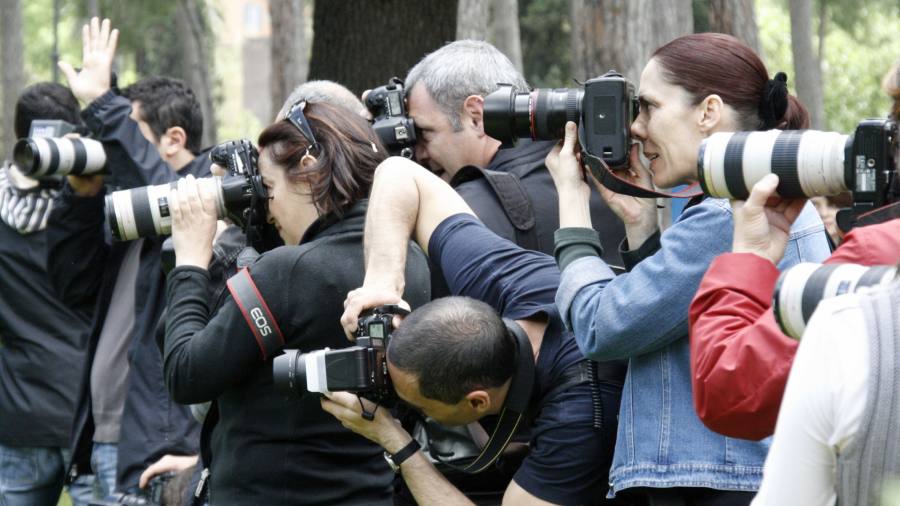Without looking it up, I cannot name the present director-general of the BBC. Nor the editor of any newspaper, save those who have tried to prise me from the FT bosom. What explains this lack of interest in my own professional world?
First, cold calculation. People in other lines of work can afford better-stocked cellars. (You aren’t getting served a 2007 Clos Saint-Jacques at a journalist’s house.) The rest is a columnist’s need for ideas. Journalists, however clever, are trained to think in specifics: this event, that announcement. For conceptual thought, for abstraction, hang around hedgies, architects, diplomats.
Anyway, this detachment might equip me to answer one of the questions of our age. Why is journalism so self-obsessed? This problem gets worse by the year. Tucker Carlson, Gary Lineker, Phillip Schofield: there is far too much media about media. Succession, the latest piece of middlebrow TV fluff that people who don’t go out tell themselves is equal to Dante, gets coverage out of all proportion to reader clicks. Why? What explains the narcissism?
Well, this is an ever tougher industry. I am as spoilt as a dowager’s cat. But for each journalist like me, there are a hundred doing hard and insecure work. Even the cultural power they once had as gatekeepers is much reduced in an age when anyone can publish anything. (A change the world will have occasion to regret.) One consolation is the sense of belonging to a branch of show business, with parties, “in” and “out” crowds, public recognition. If we treat our world as though it were a kind of Hollywood unto itself, it is to cushion the blow of smaller audiences and tighter travel budgets.
This decline-driven insularity is reinforced by something so obvious that I can’t believe it took a friend to point it out: the absence of foreign labour. I live in London, where each restaurant, building site, investment bank trading floor, tech firm, café, garage, luxe boutique and launderette contains, very often as a majority, workers from abroad. Journalism doesn’t. (The FT and The Economist are partial exceptions, as is perhaps Bloomberg.) In US media, “foreign” writers are Canadian or British. This tends to be a mono-national industry. It therefore cannot help but be parochial. Even the same surnames recur over generations.
But I don’t want to detract too much from the central theme of decline here. In a sense, journalism is going through the same fate as the serious novel. The fewer people are interested in it, the more insular and masturbatory it becomes. Which in turn causes fewer people to be interested in it.
My hero, Cormac McCarthy, died this week. He belongs to a time when novelists wrote about the outside world. In his case: horses, scalpings, ranch boys with names you could set your watch to, like John Grady Cole. He died out there in New Mexico, which no one would mistake for Bloomsbury. No master of literature has ever written less about literature. And when he relented, in his penultimate novel, it was with this sentence:
“But I will tell you Squire that having read even a few dozen books in common is a force more binding than blood.” (If I wrote that, I would light a spliff and take the rest of the decade off.)
Otherwise, he left the subject alone. Contrast that with modern fiction, which is mostly about hyper-eloquent people with underused humanities degrees feeling a bit sad in cafés. Don’t blame Sally Rooney. Don’t blame Ben Lerner. Blame the lack of public interest in their field. The attitude it induces is: no one is reading us anyway, so let us write about people like ourselves.
I get it. The same mood reigns implicitly in my trade.
And yes, I know, this column is an example of journalism about journalism about journalism. The postmodern circularity of it isn’t lost on me, were you minded to point it out. It is just that there was no other way of letting you in on the truth about the media. A declining industry has to take itself seriously, because no one else will. In the end, you see, it is your fault.
Email Janan at janan.ganesh@ft.com
Find out about our latest stories first — follow @ftweekend on Twitter
Read the full article here




